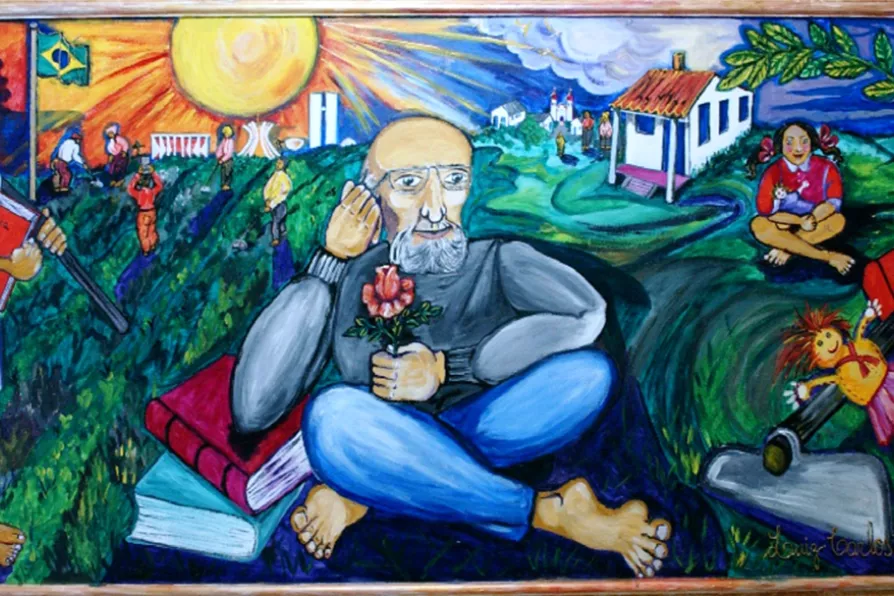JOHN GREEN, MARIA DUARTE and ANGUS REID review Fukushima: A Nuclear Nightmare, Man on the Run, If I Had Legs I’d Kick You, and Cold Storage

 Paulo Freire Panel: CEFORTEPE - Center for Training, Technology and Educational Research Prof. Milton de Almeida Santos, in Campinas a city in southeast Brazil, northwest of Sao Paulo
[Luiz Carlos Cappellano/CC]
Paulo Freire Panel: CEFORTEPE - Center for Training, Technology and Educational Research Prof. Milton de Almeida Santos, in Campinas a city in southeast Brazil, northwest of Sao Paulo
[Luiz Carlos Cappellano/CC]
THE recent publication of “Lessons in organising: What trade unionists can learn from the war on teachers” raises very many questions about the politics of education.
How does a Marxist analysis help us to understand the underlying issues: education for “domestication” or education for social transformation? Learning that prepares people to take their allotted places within the existing social order or learning that equips people to engage in collective struggles for progressive social change? And how can transformative approaches to learning be developed most effectively?
These questions are just as relevant to debates about trade union and community education, in the current context.

A teaching delegation to Cuba offered IAN DUCKETT a powerful glimpse into a schooling system defined by care, creativity and the legacy of the island’s remarkable 1961 literacy campaign

A new group within the NEU is preparing the labour movement for a conversation on Irish unity by arguing that true liberation must be rooted in working-class solidarity and anti-sectarianism, writes ROBERT POOLE

What’s behind the stubborn gender gap in Stem disciplines ask ROX MIDDLETON, LIAM SHAW and MIRIAM GAUNTLETT in their column Science and Society

The devastating impact of austerity has left Scotland’s education system on its knees, argues ANDREA BRADLEY, urging politicians to show courage by increasing wealth taxation to fund our schools properly









